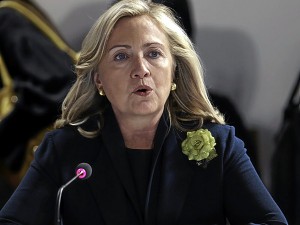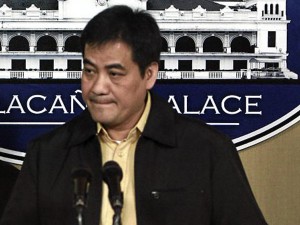ANNAPOLIS, Maryland— Secretary of State Hillary Rodham Clinton said history shows North Korea may follow a planned long-range rocket launch in violation of a UN ban with “additional provocations.”
Clinton did not elaborate in her comments Tuesday on what that might be. South Korean intelligence officials suspect the North also is preparing a nuclear weapons test — a step it took after it last such rocket test in 2009.
Clinton said the US would work with Russia and the North’s key ally, China, to send a clear message to Pyongyang that its true security can only come from living up to its international commitments.
Clinton was making a speech on US strategy in the Asia-Pacific to a packed auditorium at the US Naval Academy. Earlier, the US and Japan resolved to pursue action in the UN Security Council if North Korea goes ahead with the launch, expected as early as Thursday.
In her policy speech, Clinton said there is no substitute for American power to ensure stability and security in the Asia-Pacific.
“I see when I travel across Asia and around the world, American leadership is respected — and required,” Clinton said, describing the US military as the finest in the history of the world with an unrivaled network of alliances.
But she said Washington welcomed the rise of new powers into an international system designed to prevent conflict and stressed that an effective US relationship with a rising China was necessary for building a prosperous and peaceful Asia.
Her remarks underscored the Obama administration’s “pivot” in its foreign policy, putting more emphasis on diplomacy, trade and security ties with Asia, as it ends its military involvement in Iraq and draws down the US military presence in Afghanistan.
But in a reflection of the tensions in the US-China relationship, Clinton said the US was increasingly concerned about the growing threat to its economic and national security posed by cyber intrusions, particularly the theft of intellectual property via cyber means.
“Because the United States and China are two of the largest global cyber actors, establishing clear and acceptable practices in cyberspace is critical,” she said.



